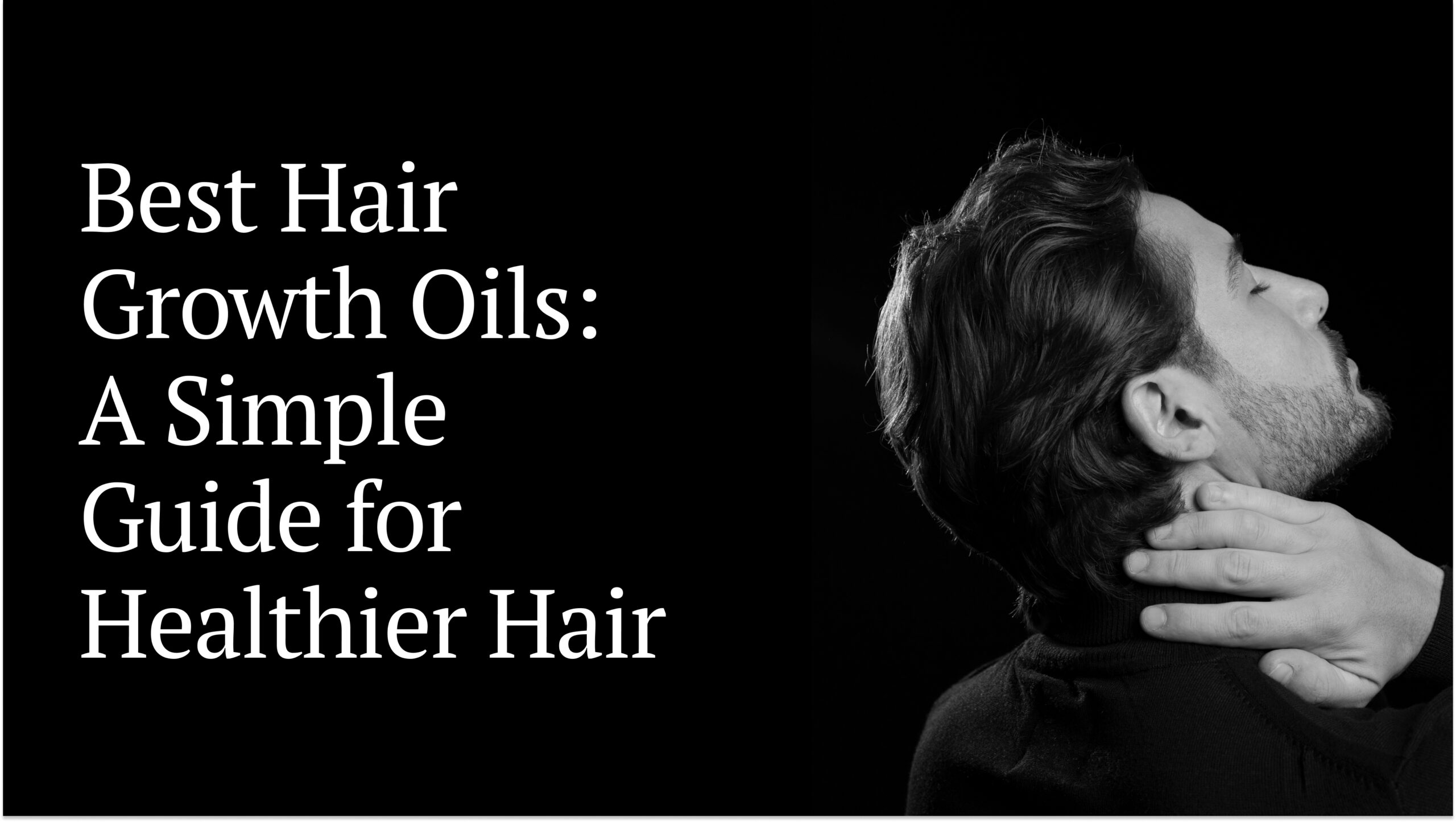If you’re looking for stronger, fuller hair, hair growth oils can be a great option to start. You might be wondering, “Do these oils really work?” or “Which oil is best for hair growth and thickness?” The answer is, it depends on the type of oil, how you use it, and the health of your scalp. The right oils can nourish your roots, strengthen your strands, and even help reduce hair shedding over time.
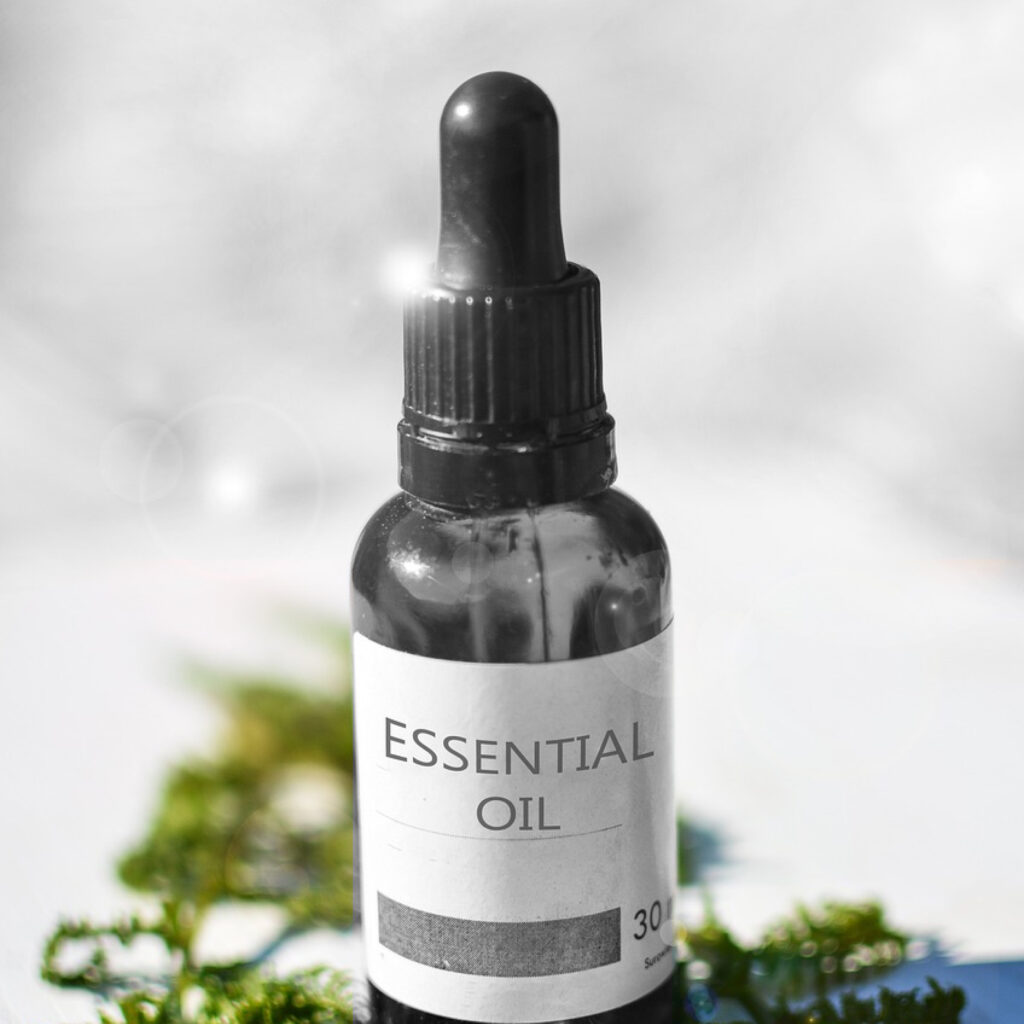
Understanding the Role of Hair Growth Oils
Hair oils have been part of hair care traditions across many cultures for centuries. You may prefer coconut oil, castor oil, or a blend like Wild Growth Hair Oil, depending on your hair needs. These oils form a protective layer around each strand, helping to reduce dryness, breakage, and dullness. Regularly massaging nourishing oils into your scalp can help soothe irritation, improve blood circulation, and create a healthier environment for natural hair growth.
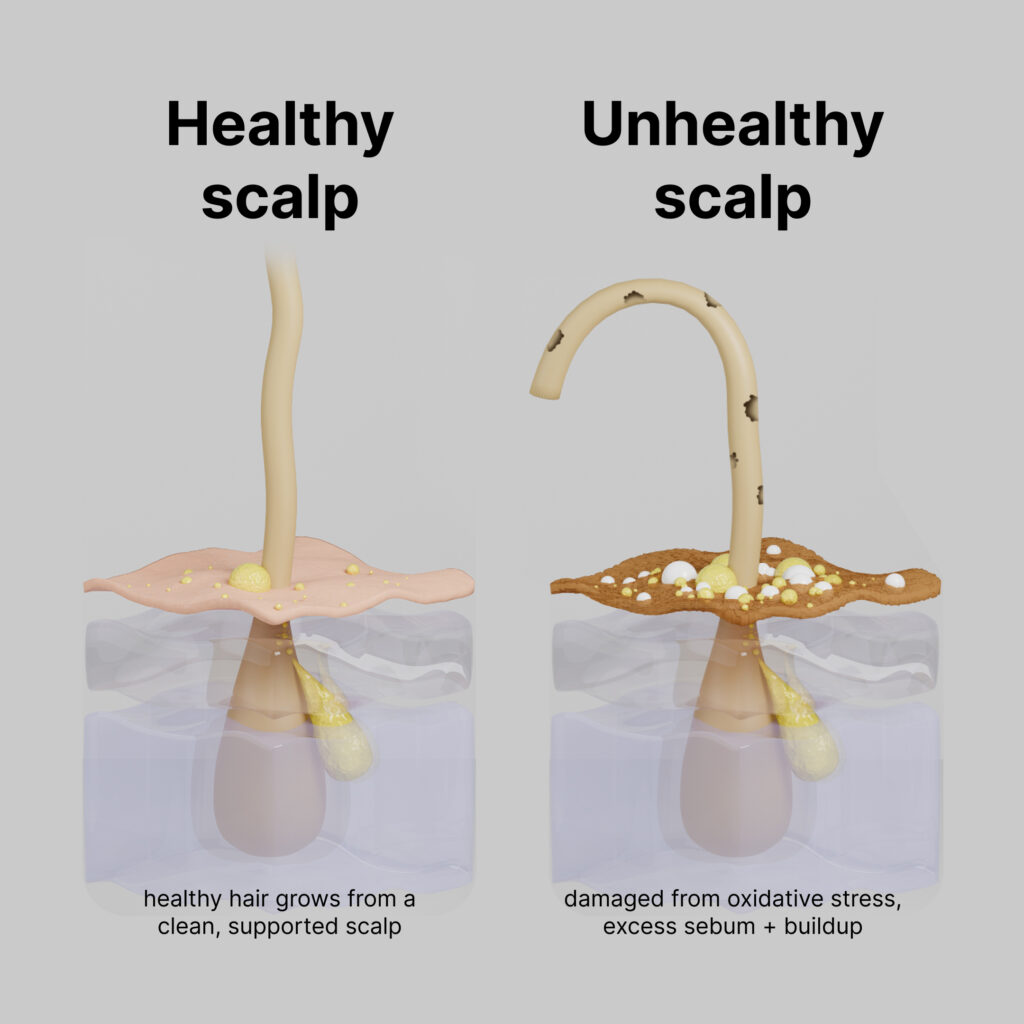
Do Hair Growth Oils Work for Everyone?
One of the common questions about hair oils is whether they can actually stimulate growth. While oils can’t create new follicles, they do help keep your existing ones active for longer. When used consistently, they can help support thicker hair and reduce early breakage. A healthy scalp also absorbs nutrients more effectively, helping your hair stay strong from root to tip. For optimal results, pair regular oiling with a balanced diet and gentle hair care practices.
Which Oil Is Best for Hair Growth and Thickness?
Different hair oils serve different purposes, so it’s important to choose one that matches your hair needs. Castor oil is thick and nourishing, coconut oil helps soften and hydrate dry strands, while rosemary oil boosts scalp circulation. Many hair products combine these ingredients to enhance their effects. The best oil for hair growth is the one that suits your hair type. If your hair feels dry, coconut oil may be beneficial, while castor oil or blended oils may be more effective to counter thinning hair.
Best Hair Growth Oils Recommended by Experts
If you prefer an evidence-based approach, some doctors recommend oils supported by research, such as rosemary or peppermint oil. These oils have shown potential to improve scalp blood circulation and promote healthy hair growth. Selecting products that combine scientific research with traditional ingredients can often yield better results.
Choosing Good Hair Growth Oils
With numerous hair oil options available, selecting the right one can be a challenging task. Product labels often promise rapid growth or instant thickness, but not every claim is supported by evidence. The most reliable way to decide is by reviewing the ingredients. Natural oils, such as jojoba, castor, and argan, are generally safer and more nourishing than formulations that are heavy in synthetic fragrances or additives. Blends enriched with rosemary or amla can further strengthen the hair and support scalp health. In most cases, simple, well-formulated oils outperform overly processed products.
Realistic Expectations with Hair Oils
Hair oils are not overnight magic. Consistency matters most. Results usually appear after steady use for weeks or months. Healthy habits such as eating protein-rich foods, drinking water, and reducing heat styling help oils work better. People who stay patient often see stronger, shinier, and thicker hair.
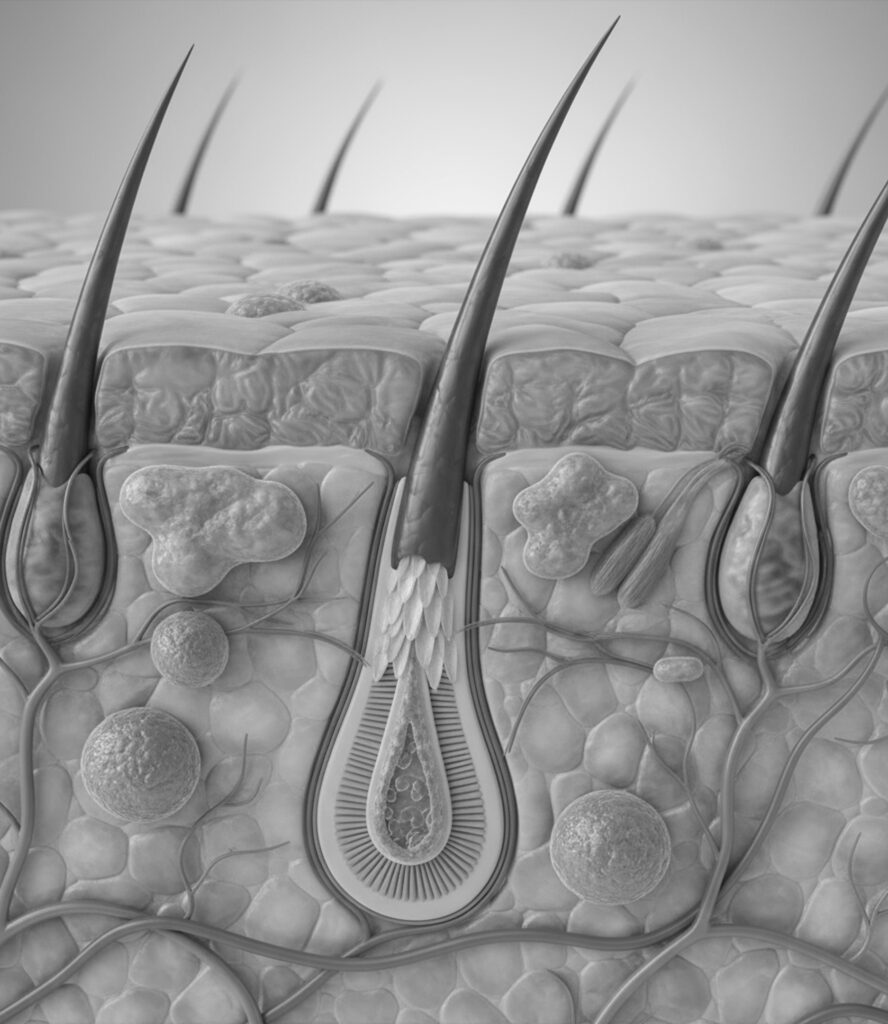
Hair Growth Oil vs Serum
If you’re confused about the difference between hair growth oils and serums, you’re not alone. Oils mainly provide nourishment and protection, while serums are packed with active ingredients like peptides or plant extracts that target hair follicles directly. You can use both for the best results, applying oil for deep conditioning and a serum for scalp care. This combination provides your hair with a healthy balance of natural nourishment and advanced hair care.
Custom Combination Therapies
Personalized therapies work on multiple biological pathways at once to target the root causes of hair loss. Through pharmacogenetic testing, markers such as SULT1A1, SRD5A2, and ACE help determine how your body responds to ingredients like minoxidil, finasteride, or dutasteride. Other active compounds, including latanoprost, cetirizine, spironolactone, caffeine, tretinoin, melatonin, and vitamin D, are selected for their proven benefits. While scalp oils nourish and protect, these personalized formulas take it a step further by reducing DHT, stimulating follicles, calming inflammation, and enhancing absorption for stronger, healthier hair growth.
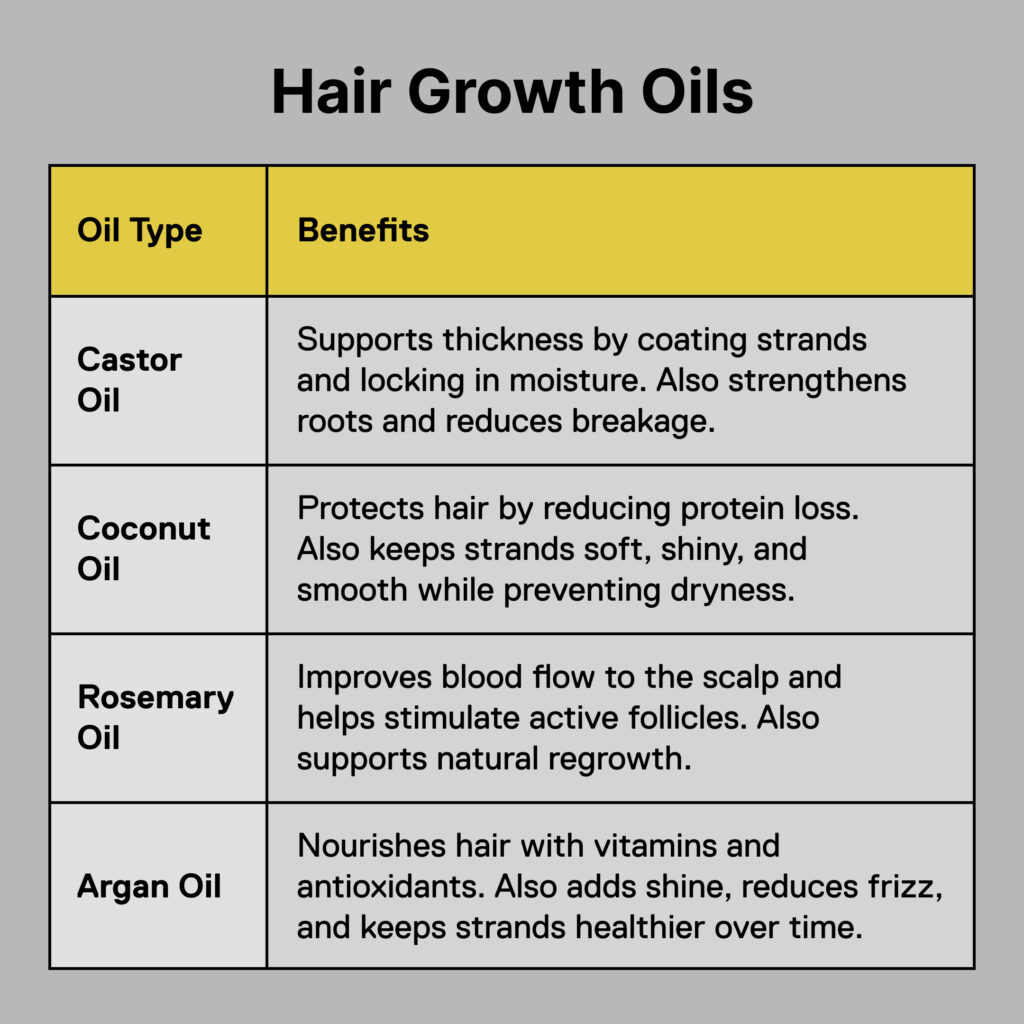
A Clear Path Toward Healthier Hair
Your hair may need both a nourishing oil and a hair growth serum to reach its full potential. Hair oils help protect your hair strands, lock in moisture, and keep your scalp healthy, while personalized topicals target deeper biological causes of hair thinning. You might find that natural oils like rosemary or castor oil give your hair softness and shine, while a DNA-guided formula supports follicle activity at the root. Using both together can create a balanced, science-backed routine that helps your hair grow stronger, thicker, and healthier over time.
👉 Want to learn about treatments beyond oils? Explore personalized options with Roots by Genetic Arts and discover what your DNA reveals about your hair needs. Enjoy 30% off with code HAIRTODAY—start your journey today!
